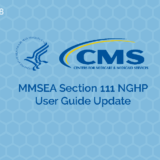Medicare Advantage Plan MSP Private Cause of Action Suits

Medicare Advantage Plan MSP Private Cause of Action Lawsuit Update
1. MSPA Claims 1, LLC v. Tenet Florida, Inc. — F.3d —- 2019 WL 1233207 18-11816 (11th Cir. March 18, 2019).
On March 18, 2019, in MSPA Claims 1, LLC v. Tenet Florida, Inc., the 11th Circuit Court of Appeals made it clear that while Medicare law as a whole and the Medicare Secondary Payer Act (MSP)[1] provisions in particular may be confusing, the MSP’s private cause of action provision [2] is clear[3]. MSPA Claims 1 (MSPA) appealed its dismissal by Defendant Tenet at the district court level in the Southern District of Florida. Because some changes had taken place since the dismissal, the appellate court indicated that MSPA was on solid legal footing if it had sued a primary plan instead of a medical provider. The take away of the Tenet case is that Medicare beneficiaries or entities such as Medicare Advantage Plans/Medicare Advantage Organizations (MAOs) that wish to bring private cause of action claims under the MSP may not bring those claims against medical providers and must only bring those MSP private cause of action double damages (MSP PCOA) claims against primary plans that fail to timely pay or reimburse the aggrieved party.
As a reminder, the MSP makes Medicare secondary to all primary plans including both Group Health Plans and Non Group Health Plans. Non Group Health Plan primary plans include Automobile Insurers, Liability Insurance (including Self Insurance),Workers’ Compensation (WC) Plans or Insurance, and No Fault Insurance.
In many other MSP PCOA MAO cases that have been reported, MAO’s have typically sued primary plans that failed to pay. Most courts that have evaluated the issue of the right of the MAO’s to bring MSP PCOA claims have acknowledged the right of MAO’s or their assigns to bring MSP PCOA claims against primary plans. By contrast, the Tenet case involved an assignee of a MAO that sued a medical provider. The dismissal of MSPA at the district court level for this case focused on deficiencies in MSPA’s assignment chain and not on which entity could be sued under the MSP private cause of action. The key MSP PCOA language that was analyzed in the Tenet case is as follows:
There is established a private cause of action for damages (which shall be in an amount double the amount otherwise provided) in the case of a primary plan which fails to provide for primary payment (or appropriate reimbursement) in accordance with paragraphs (1) and (2)(A).
42 U.S.C. § 1395y(b)(3)(A).
Comparing the limitations associated with the private cause of action with the public cause of action granted by the U.S. government in the MSP, the Eleventh Circuit clarified in Tenet that “[u]nlike the private cause of action, the government’s cause of action broadly permits lawsuits against ‘any entity that has received a payment from a primary plan’ – a grant that includes medical providers.” Id. (citing 42 U.S.C. § 1395y(b)(2)(B)(iii)(the MSP direct cause of action by the U.S.); Haro v. Sebelius, 747 F. 3d 1099, 1116 and U.S. v. Stricker, 524 F. App’x 500, 504 (11th Circ. 2013)(unpublished)). This means that while providers, attorneys, Medicare beneficiaries, or other entities that receive payment from a primary plan can be sued by the U.S. under the MSP for double damages, only primary plans themselves can be sued under the MSP PCOA.
Before reaching its decision, the Tenet court went through an analysis to confirm subject matter jurisdiction by determining whether MSPA had standing to pursue the claim. To that end, MSPA would need to show that it suffered an injury-in-fact, that was fairly traceable to the defendant’s conduct, and which was redressable by a favorable judicial decision. Id. at 2. The underlying federal claim revolved around the failure of the provider, Tenet, to pay a $286 medical bill on time. The bill was eventually paid approximately seven months late. Interestingly, the Eleventh Circuit explained that late payment was enough to show a concrete “injury-in-fact”. The Tenet court also explained why the assignment hurdles that had stopped MSPA at the district court level had been overcome at the time of the court’s decision. The district court evaluated the two-level assignment chain when the assignment chain was weak because the assignor, Florida Healthcare Plus (FHCP), had entered receivership proceedings and previously repudiated its assignment to La Ley, the entity that assigned the MSP PCOA claim to MSPA. The Eleventh Circuit in Tenet explained that just one week before its decision, FHCP entered into a settlement agreement with La Ley and MSPA that confirmed La Ley’s assignment of FHCP’s claim to MSPA and fully resolved the MSP Act assignment. Id. at 4. The court also dispelled Defendant/Appellee Tenet’s notion that an anti-assignment clause in a Hospital Services Agreement with assignee FHCP concerning the prohibition to assign hospital services would apply to the right of FHCP to assign its right (it received from the MAO) to La Ley that in turn assigned to MSPA the right to bring the MSP PCOA claim.
The Eleventh Circuit used established statutory interpretation rules to reach its final decision. MSPA argued that because paragraph (2)(A) that the private cause of action references makes a cross-reference to paragraph (2)(B), which establishes MSP conditional payment reimbursement and recovery (see MSP recovery actions by the U.S. and information on Medicare lien resolution and the new electronic payment functionality of the Medicare Secondary Payer Recovery Portal) rights, those recovery right concepts from paragraph (2)(B) should be incorporated back into the private cause of action. Essentially, MSPA was arguing that because other entities that receive payments from primary plans had obligations to reimburse Medicare for conditional payments and (2)(B) applies those recovery rights to this larger number of entities (“any entity that receives payment from a primary plan”), that the MSP PCOA could also be brought against any such entity that received a payment from a primary plan. This cross reference within a cross reference argument was shot down by the Tenet court as a “stretch.” Id. at 6. Alternatively, MSPA asked the court to rule in its favor based on authority from CMS promulgated regulations that afford MAOs the same MSP recovery rights as Medicare including the right to sue medical providers. Id. at 6 (citing 42 C.F.R.§§411.24(g), 422.108(f)). However, the Tenet court found the MSP statute to be clear and unambiguous and therefore, determined it unnecessary to look to the less authoritative CMS regulations for help with its interpretation of the MSP. Id. at 6. Because neither defendant was a primary plan, MSPA’s claim was dismissed.
2. MSPA Claims 1, LLC v. Infinity Property & Casualty Group, 2019 WL 1238852 (N.D. Al. March 18, 2019).
This second case was decided on the same day as the Tenet case but was heard at the federal trial level in the U.S. District Court in the Northern District of Alabama. This court falls within the same appellate jurisdiction (Eleventh Circuit) that decided the Tenet case. The same MSPA plaintiff discussed in the Tenet case above filed suit as an assignee of two different MAO’s on behalf of Medicare beneficiaries identified with their initials as representative examples (exemplars) for each of the two MAO’s. The asserted claims were MSP PCOA claims against insurance company, Infinity Property & Casualty Group, an undisputed primary payer. If the facts in this Infinity case were the same as those in the Tenet case except that the Defendant in this Infinity case was a primary payer instead of a medical provider, the case would have not been dismissed. However, the facts in this case were distinguishable from those of the Tenet case beyond who was sued. In the first claim of the Infinity case, MSPA was found by the court to have failed to show that Florida Healthcare Plus (FHCP – the same entity that was involved in a chain of assignments in the Tenet case), a MAO, had paid any medical bill connected to a claim of the exemplar Medicare beneficiary identified as D.W. The court seemed perturbed in announcing that Plaintiff MSPA knew what the court required but “due to a lack of either diligence or ability” failed to produce it. MSPA Claims 1, LLC v. Infinity Property & Casualty Group, 2019 WL 1238852 at 7 (N.D. Al. March 18, 2019). Without the connection to show that the MAO made a payment on behalf of the Medicare beneficiary, the Infinity court declared MSPA lacked standing to bring the claim.
The second claim of the Infinity case involved a MAO named Simply Healthcare Plans, Inc., its Management Service Organization (MSO) named InterAmerican Medical Center Group, LLC, and an exemplar Medicare beneficiary identified as B.G. The Infinity court pointed out that while the Eleventh Circuit in Western Heritage ruled that MAO’s accrue MSP PCOA recovery rights at the time they make conditional payments, the appellate court had not yet decided if the MSP statute also provides a private cause of action to MSO’s. Id. at 7 (citing Humana Medical Plan Inc. v. Western Heritage Ins., 832 F.3d 1229 (11th Cir. 2016). The Infinity court noted that district courts in the Eleventh Circuit and elsewhere overwhelmingly ruled that it does not. Id. (citing MSPA Claims I, LLC v. Liberty Mut. Fire Ins., 322 F. Supp. 3d 1273, 1283 (S.D. Fla. 2018); MAO-MSO Recovery II, LLC et al. v. State Farm Mut. Auto. Ins., 1:17-CV-1541-JBM-JEH, 2018 WL 2392827, at *7 (C.D. Ill. May 25, 2018). The Infinity court cited one case in which a district court did not rule out the possibility of MSO’s having MSP PCOA rights, citing MAO-MSO Recovery II, LLC v. Mercury General, 17-2525-AB and 17-2557-AB, 2018 WL 3357493, at *7 (C.D. Cal. May 23, 2018). The Infinity court followed the Eleventh Circuit’s Western Heritage reasoning that because the MSP does not provide conditional payment reimbursement authority to MSO’s and does not obligate MSO’s to make secondary payments to be reimbursed, the obligations of a MSO would be contractual as opposed to statutory. Id. at 8. Therefore, the court declined to expand the scope of potential plaintiffs under the MSP PCOA beyond those listed in Western Heritage (a MAO when the MAO makes a conditional payment for healthcare services, by a Medicare beneficiary when the Medicare beneficiary had healthcare services paid by Medicare (or a MAO), or a healthcare provider when that healthcare provider has not been fully paid for services provided to a Medicare beneficiary).
The Infinity court also pointed out some potential flaws in the assignment chain to the MSO from another entity called IMC which by contract, needed to approve the assignment of any purported MSP rights from the MSO to MSPA unless it was “ministerial in nature.” Because the evidence presented that the assignment was ministerial in nature failed to explain how it met the definition of that term in the contract, it failed the preponderance of the evidence standard, and the Infinity court found MSPA failed to show a valid assignment under its potential MSO claim.
Take Aways:
In the Eleventh Circuit (covering Florida, Georgia and Alabama), it is now clear that the following can sue a primary plan (only) under the MSP’s private cause of action:
• (1) a MAO when the MAO makes a conditional payment for healthcare services,
• (2) a Medicare beneficiary when the Medicare beneficiary had healthcare services paid by Medicare (or a MAO), or
• (3) a healthcare provider when that healthcare provider has not been fully paid for services provided to a Medicare beneficiary
____________________________________________________________
[1] 42 U.S.C. 1395y(b)(2) et seq.
[2] 42 U.S.C. § 1395y(b)(3)(A).
[3] MSPA Claims 1, LLC v. Tenet Florida, Inc. — F.3d —- 2019 WL 1233207 18-11816 (11th Cir. March 18, 2019) (citing The Federalist No. 62, at 421 (James Madison) (Jacob E. Cook ed., 1961) and MSP Recovery, LLC v. Allstate Ins. Co., 835 F. 3d 1351, 1358 (11th Cir. 2016).






